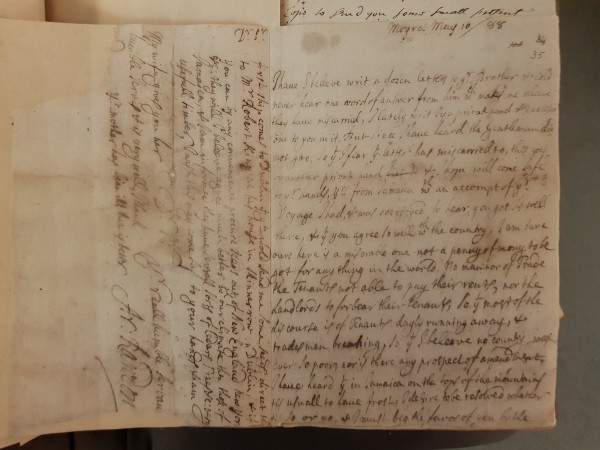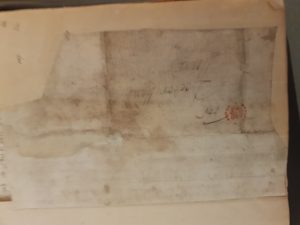Thomas Dereham to Hans Sloane – November 5, 1729
Item info
Date: November 5, 1729 Author: Thomas Dereham Recipient: Hans SloaneLibrary: British Library, London Manuscript: Sloane MS 4050 Folio: ff. 226-227
-
Language
English
-
Library
British Library, London
-
Categories
Medical, Philosophical Transactions, Royal Society, Scholarship, Social, Trade or Commodities
-
Subjects
Plants, Poison, Subscriptions, Surgery
-
Date (as written)
November 5, 1729
-
Standardised date
-
Origin (as written)
-
Others mentioned
-
Patients mentioned
Unnamed Children
Original Page

Transcription
[fol. 226] ye 5th November 1729 Sir I hope you are entirely recoverd as I wish of your late indisposition, so that you may continue for a long time in your occupations of promoting Arts, & Sciences, & preserving the health of mankind, whereas your Operation upon the four children that had eat by mistake a large quantity of Hyosciamus vulgaris has been admired in these parts by all Phisitians. The pacquet with the last Transactions that you mention is not yett come to my hands, butt I presume it will in due time, & I entreat you to return unto the Society my most dutifull thanks for there continuall favours, & pray remember the subscriptions you promised me, whereas I have in my hands the Chronologicall tables to be sent when you shall require them I entreat you to forward the enclosed wherein are some few accounts of what litterary news I can at present furnish you with, & I remaine with great respect, & esteem Sir Your most obedient, & most faithfull servant Thomas Dereham
Sir Thomas Dereham (c. 1678-1739) was a British expatriate and Roman Catholic who lived in Italy. He had a close association with the Royal Society (https://collections.royalsociety.org/DServe.exe?dsqIni=Dserve.ini&dsqApp=Archive&dsqCmd=Show.tcl&dsqDb=Persons&dsqPos=0&dsqSearch=%28Surname%3D%27dereham%27%29).
Patient Details
-
Patient info
Name: N/A Unnamed Children
Gender:
Age: -
Description
-
Diagnosis
Poisoning.
-
Treatment
Previous Treatment:
Sloane performed an 'Operation upon the four children that had eat by mistake a large quantity of Hyosciamus vulgaris'.
Ongoing Treatment:
Response:The children recovered.
-
More information
-
Medical problem reference


